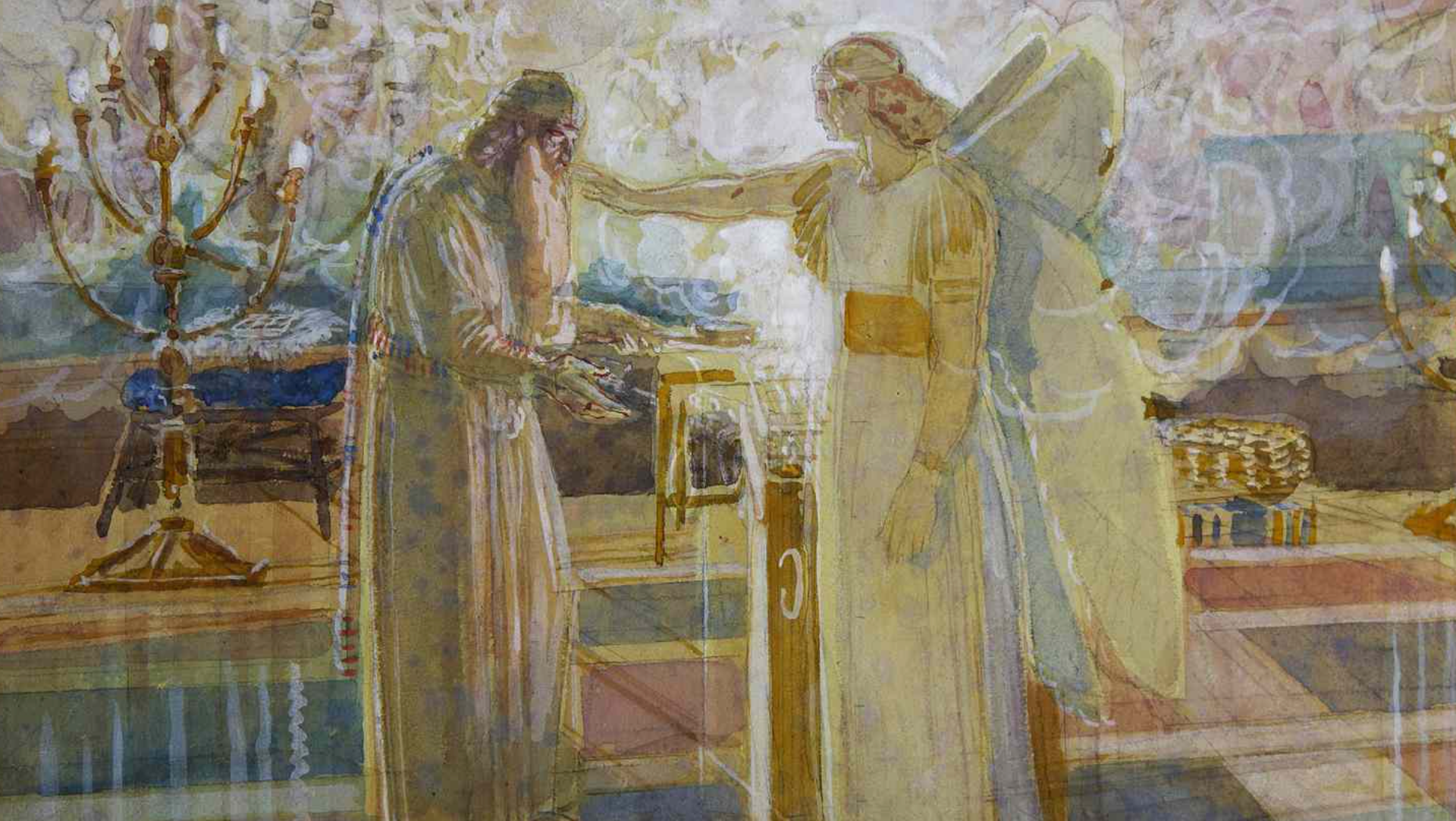The other evening, I opened up my Bible without much direction and just read from Luke 1, saying I would keep reading until something resonated with me. Sometimes reading the Bible in all of its context makes things click in ways they can’t when every story in the Bible is viewed as its own entity. Luke begins with a brief intro and then right into the foretelling of John the Baptist. The angel Gabriel visits Zechariah, who is performing his priestly duties in the temple and tells him that, despite the fact that his wife is old and barren, they will have a son, name him John, and he will be important in bringing people back to the Lord. Zechariah’s response is “How will I know that this is so? For I am an old man, and my wife is getting on in years” (Lk. 1:18). Gabriel views this as unbelief and makes Zechariah mute until the child is born.
This story goes straight into the appearance of Gabriel to Mary. He tells her that she is going to give birth to a child named Jesus who is the Son of God, and she says “How can this be, since I am a virgin?” (Lk. 1:34). Gabriel is perfectly fine with this follow up question, and as I was reading it, I honestly felt bad for Zechariah, like he must have caught Gabriel in a bad mood that day. Then, I had to slow myself down and realize that there is probably some wisdom in the Word of God and look into these responses.
When Zechariah says “How will I know this is so?” he is looking for a sign that God has the power to make his wife conceive. He is an old priest and should already know and believe that God can do all things. He should know the story of Sarah who conceives in her old age. Gabriel gets kind of offended by his request for a sign and basically says, “Dude, I am the sign” (paraphrased from Lk. 1:19). God, who can send angels to speak to him, can also work miracles.
Now, what is different about Mary’s reply? Mary is more concerned about the logistics. She knows she is a virgin and is curious how exactly she is going to conceive a child. Gabriel happily answers this question, explaining that the Lord will come upon her. If Zechariah had asked a question of this manner, asking how God’s plan will be brought about, Gabriel probably would have answered. Mary’s question already supposes that the event (her conception of Jesus) is going to happen, and from there, she asks a question. Zechariah doubts if God has the capacity to make the event happen.
In my Faith and Science class, we looked at Mary’s Fiat through the lens of “thinking with assent” as professed by Augustine, Thomas Aquinas, and Ratzinger. In science, one proves something to be certain and then assents. Thinking and often rigorous experimentation comes before saying “yes” to an idea. One does not come to faith through proof, and you could think forever and never say “yes” to God. One’s heart (or will, as Aquinas puts it) is ultimately what assents to God, as it has been touched by God. You cannot make yourself believe something against your will.
These two mentalities are seen in Zechariah and Mary. Zechariah treats his assent to God as one would treat a scientific hypothesis. He needs proof and then he will believe. Despite years as a priest, his heart has not been affected by God to accept Him. Mary allows her assent to God to be intertwined with continued questions. This perfectly embodies what Ratzinger stated in his address on faith and theology: “The will commands assent even though the thought process is still underway” (22–23). She knows in her heart (or will) what is true, and her reason must catch up to it.
In the Liturgy of the Hours, every morning, one prays the Canticle of Zechariah and every evening, one prays the Magnificat. Every day, we should gradually become more like Mary. We should allow God to touch our hearts so that we trust in His love for us and make our assent to Him no longer dependent on our reason. Rigorous experimentation could never prove how much a husband loves his wife. There is trust, there is experience, and there is faith involved. God’s love is the same way.
Source
Ratzinger, Joseph, and Henry Taylor. “Faith and Theology.” Pilgrim Fellowship of Faith, Ignatius Press, San Francisco, California, 2005.

